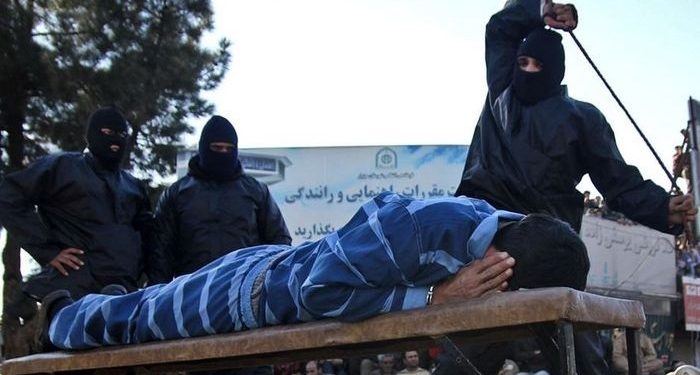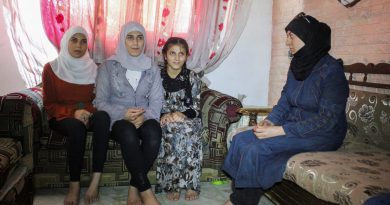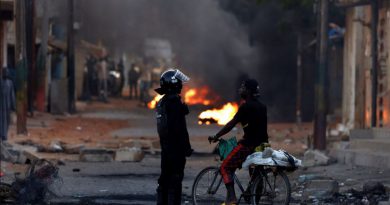Two men lashed in public for theft in Northeast Iran
Tehran (IranNewsWire) – Two men were lashed in public today for theft in the northeastern city
of Golbahar, according to the Fars state-run News Agency.
The two men were accused of violently robbing two women. They were sentenced to 74 lashes in public in addition to prison.
Before this, four men in Karaj Prison near the capital Tehran were lashed in public in front of other prisoners. The four prisoners, all under 30 years of age, were flogged on Wednesday, October 21. Two of the prisoners were accused of theft.
Over 50% of thefts carried out by first-time offenders are due to poverty.
The Greater Tehran Intelligence Police Chief said in July that in the previous three months, over 50% of people arrested for theft were “first-time offenders”.
“This shows that these (thefts) are affected by the current conditions”, Alireza Lotfi told the state-run ILNA News Agency, implying that poverty was behind the robberies.
According to a report in June by the state-run IRNA news agency, poverty is one of the main factors behind robberies in Iran.
Citing sociological research and studies, the report said population growth, high unemployment rates, changes in consumption patterns and rising living and migration costs were among the factors that shape crimes in society, one of which is theft.
A recent report published by the Statistical Center of Iran said half of Iran’s population lived in absolute poverty. The report also said Iranians were not able to buy basic groceries.
Iran’s use of degrading punishments and torture
The Iranian regime is one of the few states that still uses degrading punishments, even though all international civil and political rights conventions have prohibited the use of inhumane punishments such as execution and flogging.
The regime regularly hands out flogging sentences to protesters, dissidents, and to those charged with adultery and theft, among other things. Flogging is a cruel and degrading punishment and is tantamount to torture.
According to Amnesty International’s Philip Luther, “The use of cruel and inhuman punishments such as flogging, amputation, and blinding are an appalling assault on human dignity and violate the absolute prohibition on torture and other degrading treatment orpunishment under international law.”
“As a party to the International Covenant on Civil and Political Rights, Iran is legally obliged to forbid torture and other cruel, inhuman and degrading treatment or punishment. It’s simply unacceptable that the Iranian authorities continue to allow such punishments and to justify them in the name of protecting religious morals,” he said in July 2018 in a statement condemning the lashing of a young man for drinking alcohol”, Luther added.
More than 100 “offenses” are punishable by flogging under Iranian law.
The offenses include theft, assault, vandalism, defamation, and fraud. They also cover acts that should not be criminalized, such as adultery, intimate relationships between unmarried men and women, “breach ofpublic morals” and consensual same-sex sexual relations.



